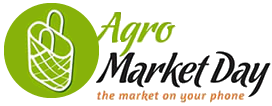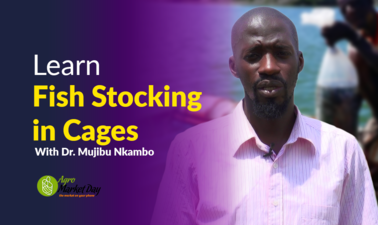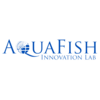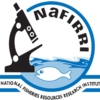
Common Fisheries Policy
1. European Fisheries Ministers discuss Mediterranean demersal fish and aquaculture
2. EU amends 2018 fishing opportunities for sandeel, cod and Maltese longliners
3. Commission proposes multi-annual plan for western waters fish stocks
4. Commission proposes multi-annual plan for Mediterranean demersal fish stocks
5. Commission adopts GFCM measures on conservation in Mediterranean Sea
6. Commission exempts certain Baltic cod and plaice fisheries from landing obligation
7. Regulation permits inshore Italian seine fishing for transparent goby
8. Stop fishing notice published for cod in North Norway waters.
9. EU and Côte d'Ivoire renew the Fisheries Protocol for six years
10. Pelagic fishing opportunities amended under EU Morocco Fisheries Agreement.
11. EUMOFA publishes its latest edition
12. EUMOFA publishes study on the price structure for processed anchovy
13. EUMOFA publishes study on market for dried salted cod in Norway
14. Commission amends protected designations certain French mussels
15. Commission invites stakeholders to European Maritime Day 2018 in Bulgaria
16. EU and partners launch Sustainable Blue Economy Finance Principles at Summit
Fish hygiene
17. Rapid alerts were notified for 33 consignments of fishery products
18. Brazil announces ban on seafood exports to the EU
19. Commission launches Knowledge Centre for Food Fraud and Quality
20. Commission recommends monitoring of metals and iodine in seaweed
21. EU and Member States discuss mercury in fish in advance of Codex meeting
22. CEFAS loses EU reference laboratory for crustacean diseases due to Brexit
23. Commission authorises fungal enzyme as a feed additive for carp.
24. New compartment free of VHS and IHN viral diseases in Slovenia
Common Fisheries Policy
1. The European Council of Agriculture and Fisheries Ministers met in Brussels on 19 March to debate the Commission's proposal for management of Mediterranean demersal stocks and the Commission informed ministers about the state of ratification by Member States of international instruments concerning working conditions and safety on board fishing vessels (which is proceeding only slowly). Ministers also discussed the joint declaration by 11 EU Member States on the future development of freshwater aquaculture in the EU after 2020, which highlights the role of freshwater aquaculture in the EU and calls for more support.
2. The EU amended some of the 2018 fishing opportunities set out in the TACs and quota regulation, modifying some reporting codes, the TACs for sandeel and cod, and Mediterranean longline fishing opportunities for Malta.
3. The European Commission published a proposal for a multi-annual plan for fish stocks in the western waters, concerning the fleets of Belgium, Germany, France, Ireland, Spain, Portugal and the UK in the Atlantic Ocean. The plan will support the CFP objectives of reaching maximum sustainable yields by 2020 and full implementation of the landing obligation by 2019, by simplifying fisheries management under one main regulatory framework, allowing for flexibility in the application of the MSY concept to account for management of mixed fisheries, and extending the precautionary approach to bycatch stocks.
4. The European Commission also proposed a multi-annual plan for demersal fish stocks in the western Mediterranean Sea, which have decreased by 23% since the early 2000s. The proposal would set fishing targets for hake, red mullet, Norway lobster and several shrimp species; simplifying management of trawl effort using fishing days scheme; and, reserve the coastal zone "We need to act, and we need to act with urgency."
5. The Commission published a proposal for a regulation to transpose a number of measures previously agreed at the General Fisheries Commission for the Mediterranean (GFCM) into EU law. The measures include a joint inspection and surveillance scheme for the Strait of Sicily and management plans for Turbot in the Black sea, Red coral in the Mediterranean and Blackspot seabream in the Alboran Sea. The measures also set out new fishing restricted areas in the Adriatic Sea and the Strait of Sicily. Commissioner for the Environment, Maritime Affairs and Fisheries, Karmenu Vella said: "This is how we keep the jobs that depend on fisheries."
6. The Commission adopted a regulation extending the exemption from the landing obligation for cod and plaice caught with trap-nets, creels/pots, fyke-nets and pound nets in the Baltic Sea as well as setting the minimum conservation reference size for cod. The request for the extension was made at the request of Denmark, Germany, Estonia, Latvia, Lithuania, Poland, Finland and Sweden, which have a direct fisheries management interest in the Baltic Sea and is based on scientific evidence of high survivability, provided by the Baltic Sea Fisheries Forum (BALTFISH) and reviewed by the Scientific, Technical and Economic Committee for Fisheries (STECF).
7. The Commission adopted a regulation derogating certain vessels from the ban on the use of towed gears in Mediterranean fisheries within 3 nautical miles of the coast or within the 50m isobath. The derogation applies to vessels undertaking seine fishing for transparent goby (Aphia minuta) in the territorial waters of Italy adjacent to the coast in the Gulf of Manfredonia (Apulia region). The measure affects a total of 100 vessels.
8. A stop fishing notice was published by the Commission due to exhaustion of quota by all Member States vessels except Germany, Spain, France, Poland, Portugal and the United Kingdom fishing for cod in areas 1 and 2B.
9. Following negotiations held in Abidjan from 13 to 16 March 2018 the EU and Government of Côte d'Ivoire agreed to renew the Protocol to their Fisheries Partnership Agreement for a period of six years. The new Protocol gives access to Ivorian waters for 36 European Union purse seine and surface longline vessels, in return for an annual financial contribution of EUR682,000. The contributions paid by the shipowners will increase by at least 20%.
10. The European Commission, under delegated powers, has approved amendments to the Protocol to the EU Morocco Fisheries Agreement. Following discussions in the joint Committee the parties have agreed to a 15% reduction to the quota allocated in 2018 to industrial pelagic fishing vessels, to ensure the sustainable exploitation of the stocks in question. The Protocol is also adjusted with associated changes in the monthly catch ceiling and catch composition.
11. The European Market Observatory for Fisheries and Aquaculture Products published its latest edition of 2018, containing articles on First sales in Europe of European hake (France, Italy, Spain), Haddock (Denmark, France, the UK). It also provides an analysis of some import prices for some selected products, and reports case studies on Salmon in Europe and Fisheries in Mauritania.
12. The European Market Observatory for Fisheries and Aquaculture Products published study on the price structure in the supply chain for processed anchovy in the EU. It found that total apparent consumption in the EU was 43.832 tonnes (live weight equivalent), including 38% of prepared and preserved anchovy. Labour costs accounted for 14-16% of the price to the consumer, and distribution costs for 28% to 53%.
13. The European Market Observatory for Fisheries and Aquaculture Products also published case study on the market for dried salted cod in Norway.
14. The Commission approved amendments to the protected designations of origin for Moules de bouchot de la Baie du Mont-Saint-Michel.
15. The European Commission Directorate General for Maritime Affairs and Fisheries, the Bulgarian EU Presidency and the Municipality of Burgas invited stakeholders to the European Maritime Day 2018. The event will take place on 31 May and 1 June 2018 in Burgas, Bulgaria and will include stakeholder workshops, a political forum with Ministers from Black Sea riparian states, a debate on the "Black Sea Big Bang" and a session on accessing EU funds for Blue Growth and Sea-basin-cooperation projects. Register online here: https://scic.ec.europa.eu/ew/
16. The Commissioner for Environment, Maritime Affairs and Fisheries Karmenu Vella attended the Economist's World Ocean Summit in Mexico, where he helped to launch the Sustainable Blue Economy Finance Principles, in partnership with the European Investment Bank, the Prince of Wales's International Sustainability Unit and WWF. These voluntary principles are intended to guide responsible investments to counter the many stresses to which the oceans are subject.
Fish hygiene
17. During March 2017 there were 33 rapid alert notifications for fishery products. There were 13 rapid alert notifications for bivalve mollusc products, 20 rapid alert notifications for other fishery products and no rapid alert notifications for crustaceans, cephalopod or gastropod products. These included 8 consignments of live oysters from France, 5 consignments of live mussels and 3 consignments of chilled mackerel from Spain and 2 consignments of frozen tuna from Vietnam.
18. Brazil announced a temporary ban on seafood exports to the European Union following an EU food safety audit from DG SANTÉ conducted in September 2017 that revealed notable discrepancies and non-compliances with EU requirements for the safety of fishery products exported to the EU. EU inspectors took issue with six of the 10 export establishments that were audited and had serious concerns regarding conditions onboard fishing vessels. The EU also identified the lack of controls to ensure separation of products of capture fisheries from aquaculture products. The Secretary of Agricultural Defense of the Ministry of Agriculture, Livestock and Supply of Brazil (MAPA) introduced the self-imposed ban on 3 January, which will remain in place until further notice. Source: INFOFISH Trade News, No. 2/2018
19. The European Commission announced the launch of a Knowledge Centre for Food Fraud and Quality to respond to consumer concerns about the quality and authenticity of food. The Centre will coordinate market surveillance activities, operate an early warning and information system for food fraud and link information systems of Member States and the Commission. It will comprise a network of experts in and outside the Commission, who will produce newsletters, interactive maps, databases and regular reports with all information to be publicly accessible and will be hosted by the Commission's Joint Research Centre.
20. The Commission published a recommendation to Member States concerning the monitoring of metals and iodine in seaweed, halophytes and products based on seaweed. Currently maximum levels for mercury levels are established in such products, whilst no MLs are established for arsenic, cadmium and lead, nor iodine. Given that seaweed and halophytes form an increasingly important contribution to the consumption patterns of certain EU consumers and use of additives based on algal products is increasing, Member States are recommended to commence monitoring of the presence of arsenic, cadmium, iodine, lead and mercury in seaweed, halophytes and associated products, including additives and animal feeds which use these products. Resulting data should be provided to EFSA to contribute to risk assessment studies, which may lead to a future regulation of these products by the EU
21. The Standing Committee on Plants, Animals, Food and Feed met in February 2018, and discussed proposals for revision of the Maximum Level (ML) for mercury, due to be considered at the Codex Committee on Contaminants in Food. The proposal is to maintain the existing MLs for shark and swordfish (includes provisions on consumption advice) for now. However, the Commission foresees a new EFSA assessment for these species in future, after the results of planned studies on the occurrence of mercury in fish and on the effectiveness of consumption advice become available. Two Member States opposed the approach and several Member States made comments in writing. The Committee agreed to continue discussions regarding the approach.
22. Following the United Kingdom notification to leave the European Union, the current EU reference laboratory for crustacean diseases, the Centre for Environment, Fisheries & Aquaculture Science (CEFAS), will cease to function as such from July 2018. The Commission has therefore adopted a regulation which extends the tasks of the current EU reference laboratory for fish diseases (Danish Technical University, Veterinary Institute) to include crustacean diseases.
23. The Commission authorised an enzyme from the fungus Trichoderma citrinoviride as a feed additive for carp.
24. The Commission announced a new compartment free of viral haemorrhagic septicaemia (VHS) and infectious haematopoetic necrosis (IHN), located in the municipality of Idrija, Slovenia.












Comments (0)
Login or Register to add a comment